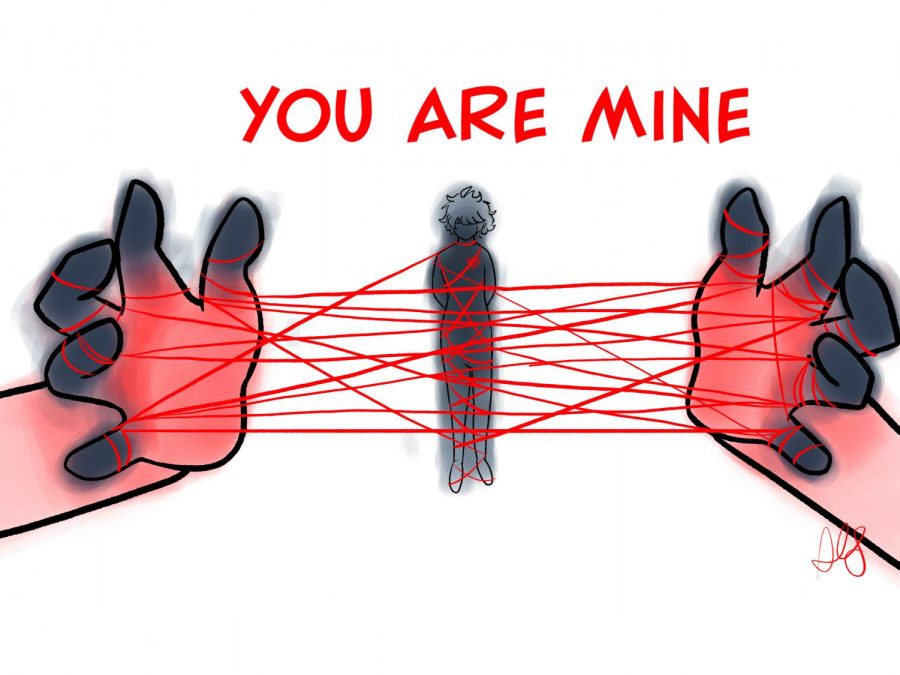Identifying Toxic Relationships
December 14, 2021
The disappearance and murder of Gabby Petito took the online world by storm, going viral and sparking nationwide discussions on toxic relationships. Relationships are hard, from navigating dates to trying to make time for yourself. With the circulation of news and media revolving around toxic relationships, it may be hard to pinpoint or put words to the things in a relationship that may be harmful. Here are some things we’ve noticed most in relationships that may be signs of it being toxic.
Cute vs. Controlling
These are things that people often misunderstand as cute or “ok” behavior, but are signs of an imbalance in a relationship. Recognizing traits like this in a partner can help someone get out of a bad relationship or help someone make it better by calling it out and working through it.
Validation vs. Attention seeking – Validation comes from when a partner seeks out understanding and acceptance from the other. They use communication as a way to better themselves and pursue greater things within the relationship. Validation becomes attention-seeking when it stops thinking about the sake of the partnership and just the praise. Attention seekers use that praise as an unhealthy way of coping with insecurities within themself rather than an encouragement to improve.
“Attention seekers that I’ve seen are mostly doing it for validation. It’s extremely narcissistic and very manipulative,” said Yasmin Washington (‘24).
While it is not toxic for a partner or friend to want to feel validated or seen, it’s important for them to recognize their own worth and self-importance without the constant need for assurance.
Caregiving vs. Taking advantage of- Caregiving is when a person takes care of a person’s emotional and physical needs. Both parties support each other and value the other as an equal in the relationship. If one partner is being taken advantage of, they use that kindness as an opportunity to exploit that behavior.
“Especially in high school, we don’t completely know ourselves. While we find that caregiving entity, we tend to open ourselves up to manipulative and possessive behaviors,” said Irot Belotti (‘22).
When dealing with someone like this it’s good to set boundaries and uphold them. You have the power to say “no,” and if they can’t respect that, they aren’t the one for you.
Quality time vs. Clingy- Quality time is when partners respect each other’s schedules. Both find a time that fits well into each other’s plans and use it to strengthen their relationship. Clinginess is when a partner doesn’t respect personal space, time, and prior arrangements.
“I feel like it depends on your comfort level, but if it gets to a point where it seems more like a codependent or symbiotic relationship it’s definitely a toxic trait.” said Alexandra Njie (‘22).
While they may think their affection is showing how much they care, it might be overwhelming and suffocating. Calmly addressing a need for personal space but still being appreciative of the time spent together may be a way to maintain a healthy balance within the relationship.
Defining vs. labeling– This is when two people rush into a relationship and label each other something like a boyfriend, girlfriend, or partner, and in more extreme cases, husband and wife before they are ready.
“It gets you mentally messed up trying to balance a relationship with two opposing sides; using labels isn’t the healthiest thing to do unless you communicate to the person about how you feel about them.” said Brian Guan (‘22)
This can be avoided by not rushing into things and taking your time talking to them. Communicating feelings and comfortability rather than jumping to labels could help with conveying your emotions long term.
Thoughtful vs. Excessive gift-giving– Thoughtful gift-giving is taking time to come up with something personal for your partner. Putting your all into a gift that will mean something to them. Excessive gift-giving occurs if you buy something based on the price tag. This hurts both in the relationship. It makes one partner feel less about the gifts they got you or feel as if they have to get something just as expensive to match.
“I feel like if you receive anything you should just be grateful for it. Nobodys really obligated to do anything, but I might if you do get something just accept it and be grateful for that.” says VJ Byrd (‘22)
Avoiding this could mean something simple as buying things within your budget or being upfront with financial limitations. Realizing early on that you can’t pay or keep up with the lifestyle they want to live can help end the potential relationship before it hurts your bank account.
Commitment vs. Putting your future aside for a relationship– Commitment is trying to find something that works for both parties without affecting future plans. No one should ever have to put something aside for a relationship. Putting your future aside focuses on choosing a relationship other than your personal future goals. It can put you both at a disadvantage by not advancing in the career field you want and could lead to unhappiness for both partners, and can also lead to giving up on your identity.
“In consideration of your future, you have to take care of yourself. If you can’t take care of yourself and you waste an opportunity with someone else and you’re both not gonna end up the happiest.” Brian Guan (‘22) said.
This is harder to avoid because you may think that you have found the love of your life, but sometimes you need to put yourself first and make the decision that is best for you. Even if you don’t want to break up with the person, you can try something long-term but if there are trust issues this will be hard on both of you. Again, open communication is crucial.
Keeping score- This happens when a partner or you keep track of what you did last, or your partner did last. Then use this information to make them do something since you did it last time.
“If one person just kind of likes, pays out of the kindness of their heart, and then somebody expects that from them And then they’re like, well why am I buying everything? That’s kind of nasty.” said VJ Byrd (‘22).
This is something that can’t really be avoided in a relationship. Keeping score from time to time in a playful way is actually good for a relationship, but if it’s something that has always happened it becomes regular behavior it becomes toxic. Just sit down with your partner to discuss the issue, and if it keeps happening break up with them.
Red flags
These are things that you can spot in the talking or early stages of a relationship. It is important to notice these signs so as not to get stuck in a relationship with someone who shows these signs and to get away before it can become a danger to you.
Blackmailing– When a person uses private information against you in order to gain something from you. This most often occurs when either person in a relationship has nudes from their partner then uses this information to gain things from the partner by threatening to leak the nudes. If you are in a relationship, and your partner or friend is blackmailing you, the first thing you should do is talk to a trusted adult. Try to avoid any confrontation with the blackmailer, and contact the police about the situation. Blackmailing is considered a crime so it is not wrong to get the police involved in the situation.
Violence- A string of actions or behavior that uses physical force to intimidate and maintain control in a relationship. “At any point in time my office is open for students to come in and talk and if they feel like they’re in danger, they need help to come into my office at any time. And we can work through the situation to figure out the best solution possible.” said The School Resource Officer.
These kinds of altercations happen when one party thinks they have the right to control the other. Pushing, If you are ever in a relationship like this whether it be a partner, friend, or family member you should leave immediately. Do not stick around or wait for it to get better. Tell a close friend, trusted adult, or authority figure if needed.
Violating boundaries- Having boundaries is a limit to what you’re willing to do with your partner and how you would like to be treated. “When someone oversteps boundaries they attempt to gaslight you into thinking you’re overreacting, for example telling you that you can’t wear something and playing it as being protective,” said Yasmin Washington (24’).
In a relationship, you should always be comfortable around each other. Setting boundaries like if you’re comfortable with them putting pictures of you on their social media, PDA, and physical intimacy are definitely things you should discuss going into a relationship. If your partner violates your boundaries, sit down for a serious conversation about your comfortability and limits. If this doesn’t work and you consistently have to talk to them it might be time to walk away. You don’t have to continue a relationship with someone who doesn’t respect or validate your boundaries.
Gaslighting- Gaslighting is when a partner manipulates you into questioning yourself and your mental health. Denying something that they did wrong and manipulating you into thinking that they didn’t do anything. “In a gaslighting situation, they play with your mental health and insecurities. Let’s say you’re at a party and you see your partner with someone else and you bring it up and they throw it back at you saying you’re being insecure.” said Alexandra Njie (‘22)
At the end of the day, it’s high school, you have time to grow and find new relationships later in life, it’s not the end of the world. Understanding and knowing your worth is important. while getting into a relationship lookout for the red flags. Know when enough is enough, don’t try to fix it, just leave and avoid the toxic roundabout the relationship is heading towards.




